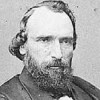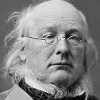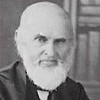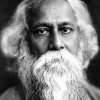Surprises are foolish things. The pleasure is not enhanced, and the inconvenience is often considerable.
What rascals we should be if we did for ourselves what we do for our country.
Camillo Benso, Conte di Cavour (1810-1861) Italian statesman
(Attributed)
I consider the Government of the United States as interdicted by the Constitution of the United States from meddling with religious institutions, their doctrines, discipline, or exercises [….] But it is only proposed that I should recommend, not prescribe, a day of fasting and praying. That is, I should indirectly assume to the United States an authority over religious exercises, which the Constitution has directly precluded them from. It must be meant, too, that this recommendation is to carry some authority and to be sanctioned by some penalty on those who disregard it; not indeed of fine and imprisonment, but of some degree of proscription perhaps in public opinion. And does the change in the nature of the penalty make the recommendation less a law of conduct for those to whom it is directed? […] Every one must act according to the dictates of his own reason and mine tells me that civil powers alone have been given the President of the United States, and no authority to direct the religious exercise of his constituents.
Thomas Jefferson (1743-1826) American political philosopher, polymath, statesman, US President (1801-09)
Letter to Samuel Miller (23 Jan 1808)
(Source)
On refusing to issue a Thanksgiving proclamation during his presidency.
So, as you go into battle, remember your ancestors and remember your descendants.
[Et majores vestros et posteros cogitate]
Tacitus (c.56-c.120) Roman historian, orator, politician [Publius or Gaius Cornelius Tacitus]
Agricola, ch. 32 [tr. Acheson, ch. 4, para. 22 (1938)]
(Source)
Alt. trans: "Think of your ancestors and your posterity" or "Think of your forefathers and posterity."
A leader’s fundamental choice is whether to approve the use of force. If he decides to do so, his only vindication is to succeed. His doubts provide no justification for failure; restraint in execution is a boon to the other side; there are no awards for those who lose with moderation. Once the decision to use force has been made, the President has no choice but to pursue it with total determination — and to convey the same spirit to all those implementing it. Nations must not undertake military enterprises or major diplomatic initiatives that they are not willing to see through.
Deceive not thy Physitian, Confessor, nor Lawyer.
George Herbert (1593-1633) Welsh priest, orator, poet.
Jacula Prudentum, or Outlandish Proverbs, Sentences, &c. (compiler), # 105 (1640 ed.)
(Source)
There is all the difference in the world between the criminal’s avoiding the public eye and the civil disobedient’s taking the law into his own hands in open defiance. This distinction between an open violation of the law, performed in public, and a clandestine one is so glaringly obvious that it can be neglected only by prejudice or ill will.
Hannah Arendt (1906-1975) German-American philosopher, political theorist
“Civil Disobedience,” Crises of the Republic (1969)
(Source)
Do you know, Fontanes, what most amazes me in the world? The inability of force to maintain anything at all. There are only two powers in the world: the sword and the mind. In the long run, the sword is always defeated by the mind.
Any sufficiently advanced prejudicial piety is indistinguishable from hatred.
It is the habit of the boa constrictor to besmear the body of his victim with a foul slime before he devours it; and there are many people in England, and perhaps elsewhere, who seem to be unable to contemplate military operations for clear political objects, unless they can cajole themselves into the belief that their enemy are utterly and hopelessly vile. To this end the Dervishes, from the Mahdi and the Khalifa downwards, have been loaded with every variety of abuse and charged with all conceivable crimes. This may be very comforting to philanthropic persons at home; but when an army in the field becomes imbued with the idea that the enemy are vermin who cumber the earth, instances of barbarity may easily be the outcome. This unmeasured condemnation is moreover as unjust as it is dangerous and unnecessary.
Winston Churchill (1874-1965) British statesman and author
The River War: An Historical Account of the Reconquest of the Soudan, Vol. II (1899)
This passage is not included in the 1902 one-volume abridgment.
Ah! there is nothing like staying at home for real comfort.
If being a parent consists often of passing along chunks of ourselves to unwitting — often unwilling — recipients, then books are, for me, one of the simplest and most sure-fire ways of doing that. I would be most content if my children grew up to be the kind of people who think decorating consists mostly of building enough bookshelves.
Let the sweet Muses lead me to their soft retreats, their living fountains, and melodious groves, where I may dwell remote from care, master of myself … let me no more be seen in the wrangling forum, a pale and odious candidate for precarious fame … let me live free from solicitude … and when nature shall give the signal to retire may I possess no more than I may bequeath to whom I will. At my funeral let no token of sorrow be seen, no pompous mockery of woe. Crown me with chaplets; strew flowers on my grave, and let my friends erect no vain memorial to tell where my remains are lodged.
Tacitus (c.56-c.120) Roman historian, orator, politician [Publius or Gaius Cornelius Tacitus]
“A Dialogue on Oratory,” sec. 13, Dialogus, Agricola, Germania
In The Works of Tacitus, Oxford trans., rev., vol. 2, (1854). The above is the version read at the funeral for Justice Hugo Black. The printed version differs in reading, at the start, "Me let the sweet Muses lead," and in using "anxious" for "odious."
Alt trans. (Peterson (1914)): "As for myself, may the 'sweet Muses,' as Virgil says, bear me away to their holy places where sacred streams do flow, beyond the reach of anxiety and care, and free from the obligation of performing each day some task that goes against the grain. May I no longer have anything to do with the mad racket and the hazards of the forum, or tremble as I try a fall with white-faced Fame. I do not want to be roused from sleep by the clatter of morning callers or by some breathless messenger from the palace; I do not care, in drawing my will, to give a money-pledge for its safe execution through anxiety as to what is to happen afterwards; I wish for no larger estate than I can leave to the heir of my own free choice. Some day or other the last hour will strike also for me, and my prayer is that my effigy may be set up beside my grave, not grim and scowling, but all smiles and garlands, and that no one shall seek to honour my memory either by a motion in the senate or by a petition to the Emperor."
Fame is a vapor; popularity an accident; riches take wings; the only earthly certainty is oblivion ….
Horace Greeley (1881-1872) American newspaper editor, reformer, politician
Recollections of a Busy Life, ch. 18 (1868)
(Source)
Quoted by Mark Twain in his Notebook (1869), and often attributed to him. Frequently misquoted as "Fame is a vapor; popularity an accident; riches take wings; those who cheer today will curse tomorrow; only one thing endures: character." More discussion of this quotation here.
Taxes are what we pay for civilized society.
Oliver Wendell Holmes, Jr. (1841-1935) American jurist, Supreme Court Justice
Compania General De Tabacos De Filipinas v. Collector of Internal Revenue, 275 U.S. 87, 100 (1927) [Dissent]
(Source)
Full text is "Taxes are what we pay for civilized society, including the chance to insure.
References are also found (without citation) to a 1904 speech, "Taxes are the price we pay for a civilized society" (this variation is quoted by the IRS above the entrance of their headquarters). Bartlett's (1980) cites the above wording, but incorrectly claims it was in 1904.
In Felix Frankfurter, Mr. Justice Holmes and the Supreme Court (1938), Holmes is quoted as rebuking a secretary's query about hating to pay taxes: "No, young feller. I like to pay taxes. With them I buy civilization."
More information here.
Never waste any time you can spend sleeping.
Frank H. Knight (1885-1972) American economist, academic
Classroom lecture, U. of Chicago (1936)
Quoted in H. Stein, "Herb Stein's Unfamiliar Quotations," Slate (16 May 1997).
Courage is the price that life exacts for granting peace.
The soul that knows it not knows no release
From little things.
The awareness of their individual blemishes and shortcomings inclines the frustrated to detect ill will and meanness in their fellow men. Self-contempt, however vague, sharpens our eyes for the imperfections of others. We usually strive to reveal in others the blemishes we hide in ourselves.
Eric Hoffer (1902-1983) American writer, philosopher, longshoreman
True Believer: Thoughts on the Nature of Mass Movements, Part 3, ch. 14, § 100 (1951)
(Source)
The people who have sufficient passion for the truth to give the truth a chance to prevail, if it runs counter to their bias, are in a minority. How important is this “minority?” It is difficult to say at this point, for, at the present time their influence on governmental decisions is not perceptible.
Leó Szilárd (1898-1964) Hungarian-American physicist
“Are We on the Road to War?”, speech at Harvard Law School (17 Nov 1961)
Full text.
Buddhism instructs its followers to forsake attachments to material things. Go for it, guys. That’s just more material things for those of us who have enough sense to glorify our Lord with speedboats.
DESTRUCTION: It’s astonishing how much trouble one can get oneself into, if one works at it. And astonishing how much trouble one can get oneself out of, if one simply assumes that everything will, somehow or other, work out for the best.
Neil Gaiman (b. 1960) British author, screenwriter, fabulist
Sandman, Book 10. The Wake, # 72 “Chapter 3, In Which We Wake” (1995-11)
(Source)
You load sixteen tons, and what do you get?
Another day older and deeper in debt.
Saint Peter, don’t you call me ’cause I can’t go,
I owe my soul to the company store.Merle Travis (1917-1963) American country and western singer, songwriter, musician
“Sixteen Tons” (song) (1947)
Faith which refuses to face indisputable facts is but little faith.
It will, I believe, be everywhere found, that as the clergy are, or are not what they ought to be, so are the rest of the nation.
It is this belief in absolutes, I would hazard, that is the great enemy today of the life of the mind. This may seem a rash proposition. The fashion of the time is to denounce relativism as the root of all evil. But history suggests that the damage done to humanity by the relativist is far less than the damage done by the absolutist — by the fellow who, as Mr. Dooley once put it, “does what he thinks th’ Lord wud do if He only knew th’ facts in th’ case.”
And now bills were passed, not only for national objects but for individual cases, and laws were most numerous when the commonwealth was most corrupt.
[Corruptissima re publica plurimae leges.]
Nothing worth doing is completed in our lifetime; therefore, we are saved by hope. Nothing true or beautiful or good makes complete sense in any immediate context of history; therefore, we are saved by faith. Nothing we do, however virtuous, can be accomplished alone; therefore, we are saved by love.
Not clamour, but love,
Not rumour but dedication,
Not violence but intelligence
Sings in the ear of God.[Non clamor, sed amor,
non vox, sed votum,
non cordula, sed cor
cantat in aure Dei]Thomas of Celano (c.1200 - c.1265) Italian friar, poet, hagiographer [Tommaso da Celano]
(Attributed)
A similar phrase -- "Not the voice but the deed, not the music of the heart but the heart, not noise but love sings in the ear of God" -- is attributed to Jordanus de Saxonia, an Augustinian hermit born in Quedlinburg in 1299.
It is not to be supposed that the age-old readiness to try to convert minds by pressure or suppression, instead of reason and persuasion, is extinct. Our protection against all kinds of fanatics and extremists, none of whom can be trusted with unlimited power over others, lies not in their forbearance, but in the limitations of our Constitution.
Robert H. Jackson (1892-1954) US Supreme Court Justice (1941-54), lawyer, jurist, politician
American Communications Association v. Douds, 339 U.S. 382, 438-439 (1950) [concurrence and dissent]
(Source)
The price of absolute freedom from necessity is, in a sense, life itself, or rather the substitution of vicarious life for real life. … The human condition is such that pain and effort are not just symptoms which can be removed without changing life itself; they are the modes in which life itself, together with the necessity to which it is bound, makes itself felt. For mortals, the “easy life of the gods” would be a lifeless life.
Striving for perfection is demoralizing. Striving for excellence is motivating.
Harriet Braiker (1948-2004) Psychologist, consultant, author
The Disease to Please, ch. 2 (2001)
A parallel quote in the book is "Striving for perfection is a demoralizing and guaranteed formula for failure. Striving for excellence, on the other hand, is motivating because reaching it is attainable."
More often quoted as: "Striving for excellence motivates you; striving for perfection is demoralizing."
Full text.




































